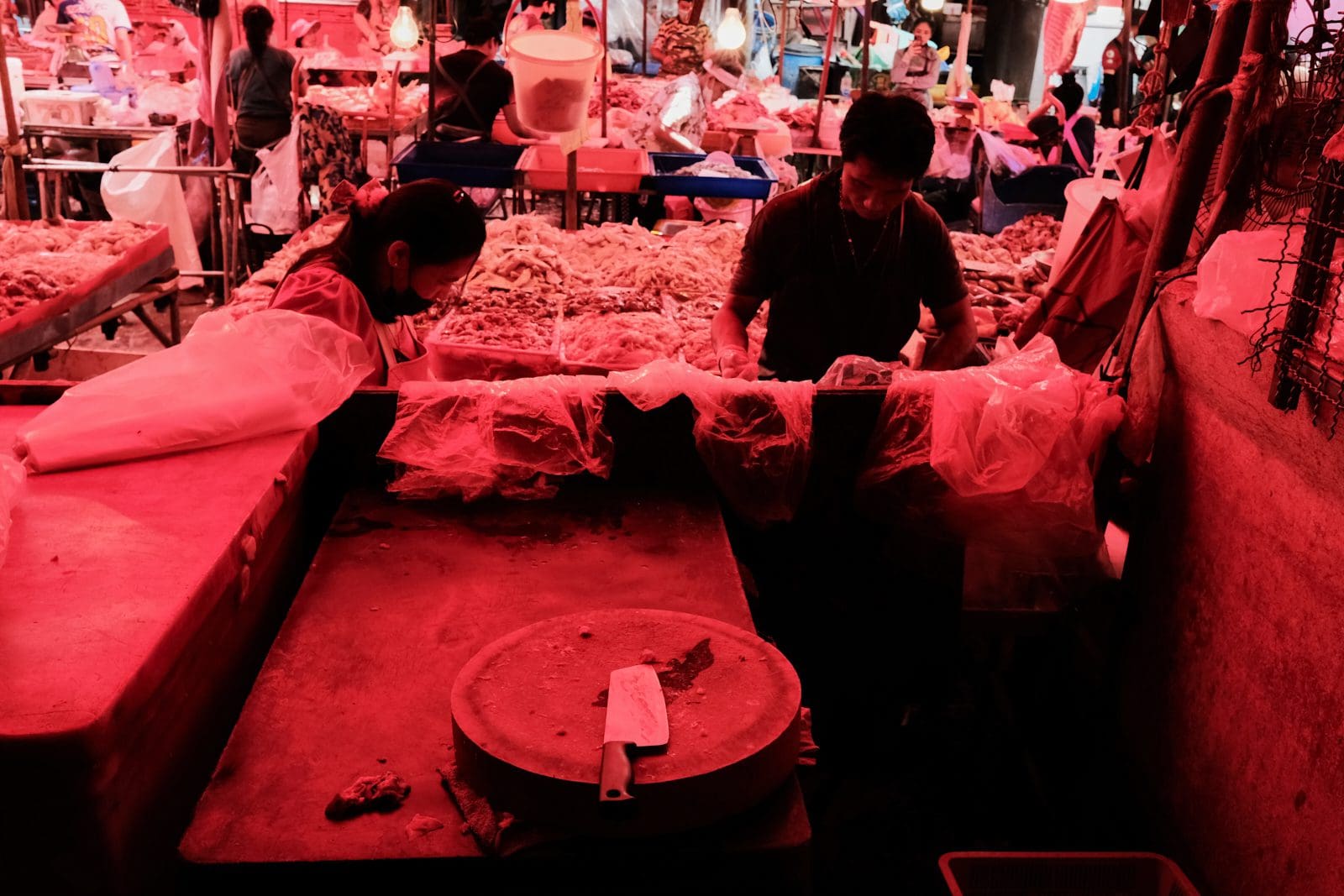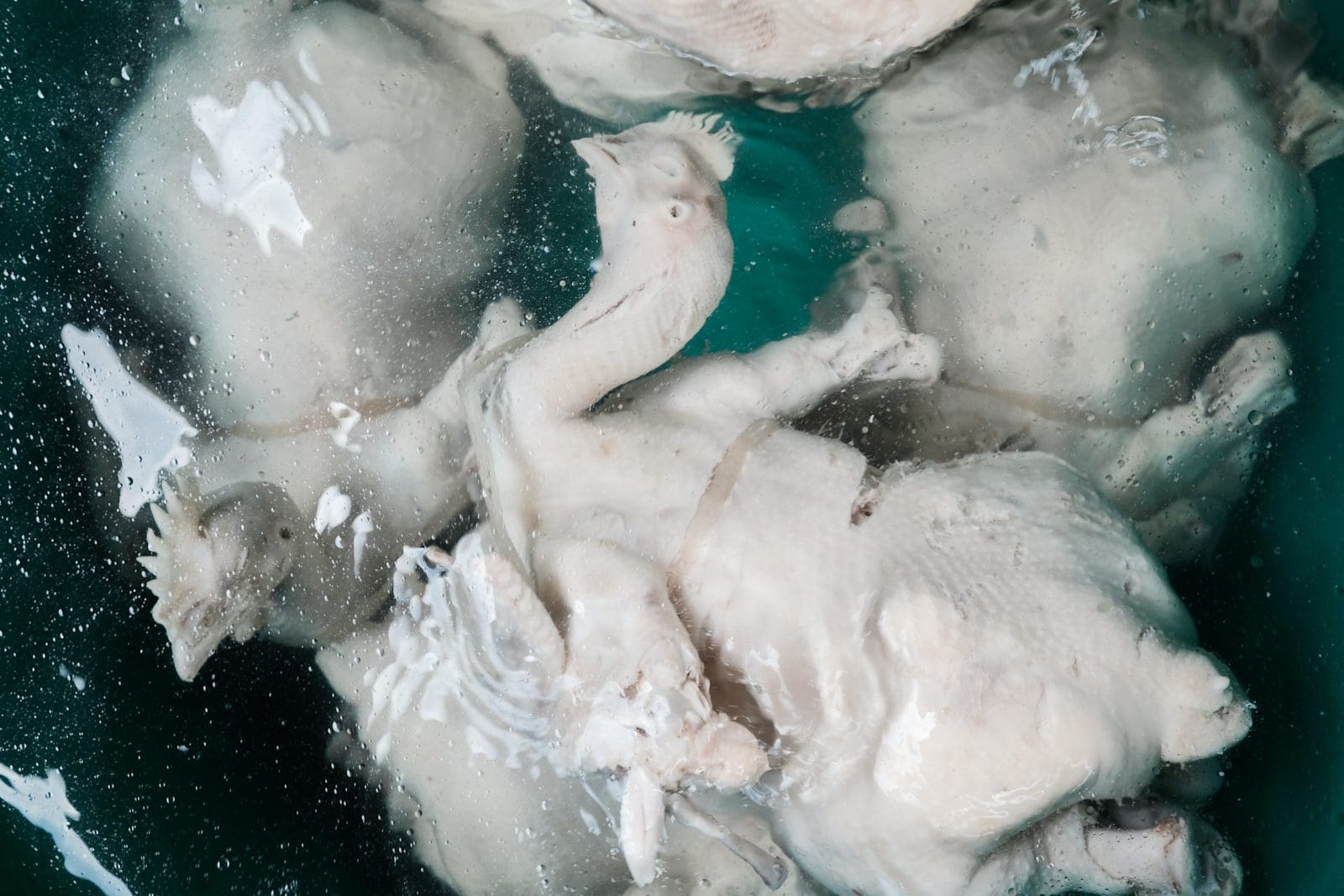
We are in Bangkok and, constantly searching for authenticity, we visit the Khlong Toei district, home to the city’s largest fresh market. A jumble of stalls and pavilions makes up a dense network of paths where carts and motorcyclists make their way through the crowded lanes. Open round the clock, traders work non-stop, satiating the mouths of more than 10,000,000 people.
“Whatever you eat in Bangkok, know that it comes from here,” Gabriel tells me as we arrive in front of the endless entrances of this labyrinth.
So we decide to part ways, letting our senses guide us and our curiosity to taste, if only for a few hours, the visceral love of traditional Asian food.
Carried along by a current of bodies, a darker part of the marketplace, where shadows carry carcasses and shreds of meat, becomes apparent to my eyes.
I step into a place where light has no place. Fading, it is coloured red, with shreds of intestines dripping from the tables as crawling beasts try to feed. My feet move forward in the dark while the air I breathe combines death and life.
The butchers snicker merrily while I, an unwitting farang*, am caressed by the horrid, in which guilty, I find relish in it and feel that the rawness of this place is pregnant with sacredness.
I try to find a meaning to it all, perhaps there is not yet, but I wait for it in a ticking time marked by the chiming of machetes.
It will be true that every sacrifice corresponds to the sign of a life, past, future, that remains difficult to understand, but I am willing to accept it if it means letting go of all this humanity.
*Farang – termine persiano utilizzato in Thailandia per indicare genericamente l’uomo europeo bianco


